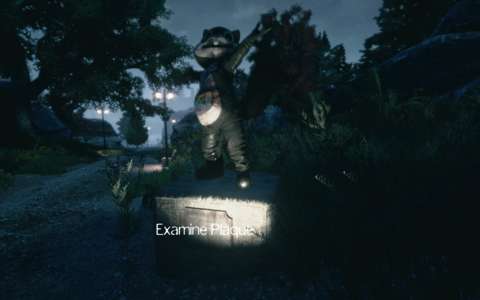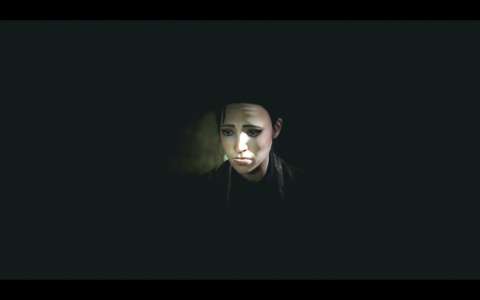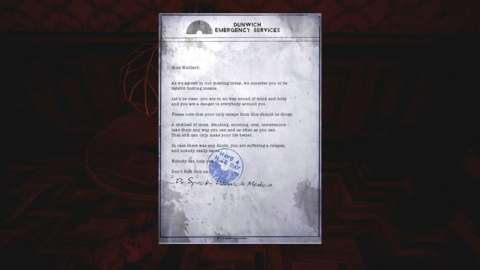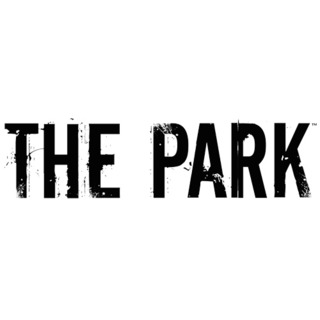A woman returns to a local amusement park to search for Mr Bear, the teddy bear lost by her young son Callum; but soon the boy himself disappears, Atlantic Island Park lapses into desertion, and what seemed a promise of odd after-hours amusement turns out a delusional nightmare.
Like in a dream you are subjected to an unsettled reality; you follow the itinerary set up by the authors: swan-form gondolas invite you for a short ride through the Tunnel of Tales to relate in a fairytale manner what soon becomes a narrative leitmotif: the true story of Hansel & Gretel. For a moment Lorraine is Callum's sister rather than his mother, perma-hungry for their own "house made of candy", whereas in another reading the mother and the witch are the same person, and it soon dawns on you that Callum wasn't really that wishchild spoiled by outdoor recreation.

Guided by Lorraine's inner voice you docilely read all the hints readably displayed in the surroundings as you follow the way from the Octotron to the Bumper Cars and from the Ferris Wheel to the Rollercoaster, evoking the unfunny occurrences that disenchanted this site: a creepy Chipmunk, strange accidents, one fatally involving Callum's happed father–more than a visitor you are to find out the truth, or hasn't it also been you, Lorraine, concealing it? – "Sometimes people leave your life for no reason."
The Park's last stage, the House of Horrors, whose entrance makes allusion to aforesaid witch, isn't scary through its unwelcoming darkness (a flashlight has to be obtained first), its mirrors and caricatural carton appearances, it is so through what you uncover behind: Callum and his mom have been living here, the horrors are theirs and real, a disturbing reality of broken homes and troubled relationships, depression and drug abuse. Mother and child are the very antithesis of what Nathaniel Winter's park does stand for; and yet the boy and Atlantis Island are the same age, the one born the day the other opened.

"People lose things all the time", but what is it they lose, teddy bears, kids, parents, the sense of reality, themselves? The refrain of the guy in the ticket booth–who might as well be a psychiatrist or police officer–frames the story, while its narrators seemingly prefer maintaining some of the mysteries even at the end.
Still, its telling is not labored and Lorraine's voice (Fryda Wolff) sufficiently convincing so to not impose itself, hence The Park lets you gather your own impressions while interacting with the crepuscular environment; you'll likely spend over two hours strolling (or "running" using Shift) until you "find your fate".
Likewise evocative of drug exposure or some dreamlike state are the moments of visual and audible distortion that trouble the blue-shaded parkscape views: "this is perfectly normal and should not be any cause for alarm or psychiatry" as the developers put it in the opening. A psychological horror adventure of the "walking simulator" type the gameplay elements are but reduced to calling out for Callum (RMB), which provides additional clues, riding the few, dilapidated installations, and examining the items (LMB) along the way, notes, flyers, and newspaper clips that at first glance suggest weird Alan Wake-ish incidents: "The Park is a collage of contradictions all of its own".

Inside the House of Horrors however exploration takes a spiral downward course that rather makes think of the Amnesia games; the same closed interior changes every time you pass, transforms, deteriorates: it's your own mirrored self you are looking at as nightmarish evidence gradually becomes reality.
However, some of the still-life-like tableaus are pretty indicative and thus appear a bit forced, such as a doll's head in a casserole or a teddy butchered in the fridge, yet The Park's story is too deeply felt to suspect some frivolous irony here.
It is The Park's atmospheric desolation and its subtle suggestive writing that makes the game worth being played; you could spend more time with the solitarily turning carousels that seem so indifferent as to the calamities that happened here, for even abandoned an amusement park does have its end in itself. But then the House of Horrors drowns you into its yellowed gloom and turning back is no option anymore.
Its psychotropic horrors make The Park a terrifying and progressively distressing emotional adventure, latent human shortcomings rather than aliens or zombies, which its short duration permits playing in one intense take.

